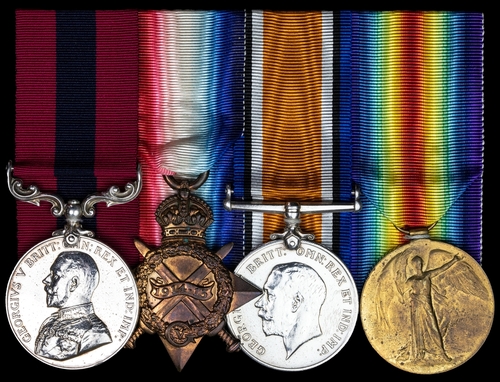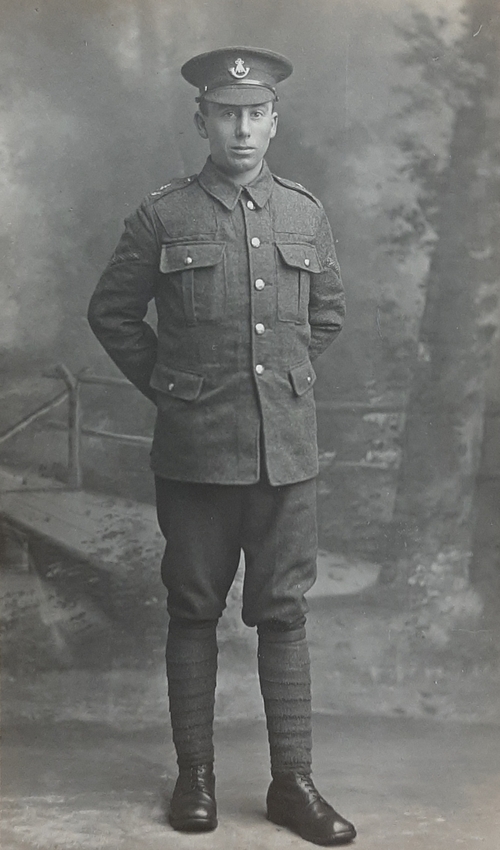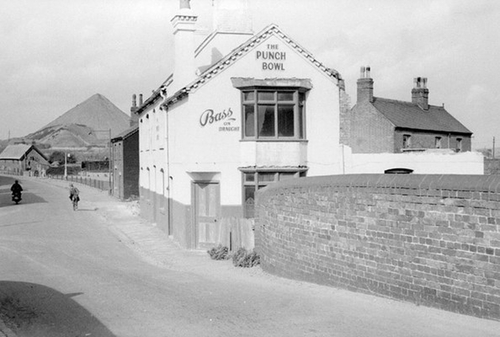Auction: 25003 - Orders, Decorations and Medals
Lot: 201
The 'Festubert and Loos 1915' Great War D.C.M. group of four awarded to Serjeant F. Merry, 2nd Oxford & Buckinghamshire Light Infantry, for voluntarily going out into No-Man's Land to collect the wounded, despite being so ill as to be light-headed
Distinguished Conduct Medal, G.V.R. (9140 L.Cpl. F. Merry. 2/O.&B.L.I. 1915), the date privately engraved; 1914-15 Star (9140 Pte. F. Merry. Oxf: & Bucks: L.I.); British War and Victory Medals (9140 Sjt. F. Merry. Oxf. & Bucks. L.I.), pitting, minor contact wear overall, very fine (4)
D.C.M. London Gazette 11 March 1916, the original citation:
'For conspicuous devotion to duty. Although very ill, he refused to go sick, and carried on all his duties, including the voluntary collection of the wounded between the lines, till he became light-headed. He also did very good work on another occasion.'
The Annotated Gazette states: 'Richebourg 15 & 16 May 1915; Givenchy 25 & 26 September 1915'.
Fred Merry was born at Nuneaton on 26 September 1884, the son of Abraham and Lizzie Merry. Serving with the Oxfordshire and Buckinghamshire Light Infantry for seven years he joined the Army Reserve but was re-called for service on 2 September 1914 at Nuneaton, Warwickshire.
Entering the war in France on 26 January 1915 with the 2nd Battalion Merry saw action at the Battle of Festubert when the unit went into the line at Richebourg. When the Battle of Festubert was launched late on 15 May 1915 the Battalion part of the second wave to go over the top. The 3-day bombardment beforehand had failed to seriously damage the German defences and as such the first wave, made up of men from the Inniskillings suffered heavy losses. The Ox and Bucks were called in to support them and began to suffer heavy losses as a result.
They took the first line however the enemy resistance was too strong for them to advance further, leaving them stuck between the Worcesters and the Inniskillings over the course of the night under heavy attack. Holding the line during the next day while the others withdrew the Battalion was finally relived by the 15th Sikhs on 17 May. Their losses came to 395 men of all ranks killed, wounded and missing.
Major Eden commanding the Battalion wrote in his diary of the evening:
'Our stretcher-bearers did yeoman service throughout the night; but, had there been more available, we could have employed three times the number. Scott, our Medical Officer, was a most indefatigable worker'
Merry's conduct saw him appointed Lance Corporal in August 1915 however around the same time he appears to have fallen ill with Bronchitis. He was still in this state when the Battalion-despite their recent appalling casualties- they were in action not long later at Loos in September 1915. The British deployed gas and smoke however in the Ox and Bucks side of the line the lack of wind prevented it from reaching the German lines, instead causing many issues to the British troops.
Despite this the attacking Battalion advanced from Givenchy and managed to reach and take some of the German frontline, only to be driven back by concentrated counterattacks. Returning to their positions before Givenchy they regrouped, the Battalion did not attack again the next day, but rather recovered those wounded who could still be reached. Despite his illness Merry distinguished himself by going out onto No-Man's land and collecting the wounded.
Evacuated to Britain in October 1915 with Bronchitis he was soon well again and sent back to Active Service, this time with the 1st Battalion. This unit was being reconstituted from available men as the original 1st Battalion had gone in the bag at the Fall of Kut. Merry arrived with them on 24 June 1916 and was soon advanced Corporal on 30 August 1916. The Battalion was busy training and reforming and as such saw little action over the next year. However, as an experienced and decorated soldier Merry was clearly a valuable asset and as such was further promoted Lance Sergeant on 30 October 1916 and Sergeant on 3 February 1917.
They did see some action at the end of the Mesopotamian Campaign and were notably present at the Action of Khan Baghdadi in March 1918. Merry returned to Britain on 22 February 1919 and was posted to the Army Reserve on 25 April 1919. He gave his address upon demobilisation as the Punch Bowl, Nuneaton, a local pub. Merry died Blackpool on 2 July 1981, his occupation listed as retired publican; sold together with copied research as well as the recipient's original certificate of demobilised and an annotated photograph.
Subject to 20% VAT on Buyer’s Premium. For more information please view Terms and Conditions for Buyers.
Sold for
£1,200
Starting price
£600









